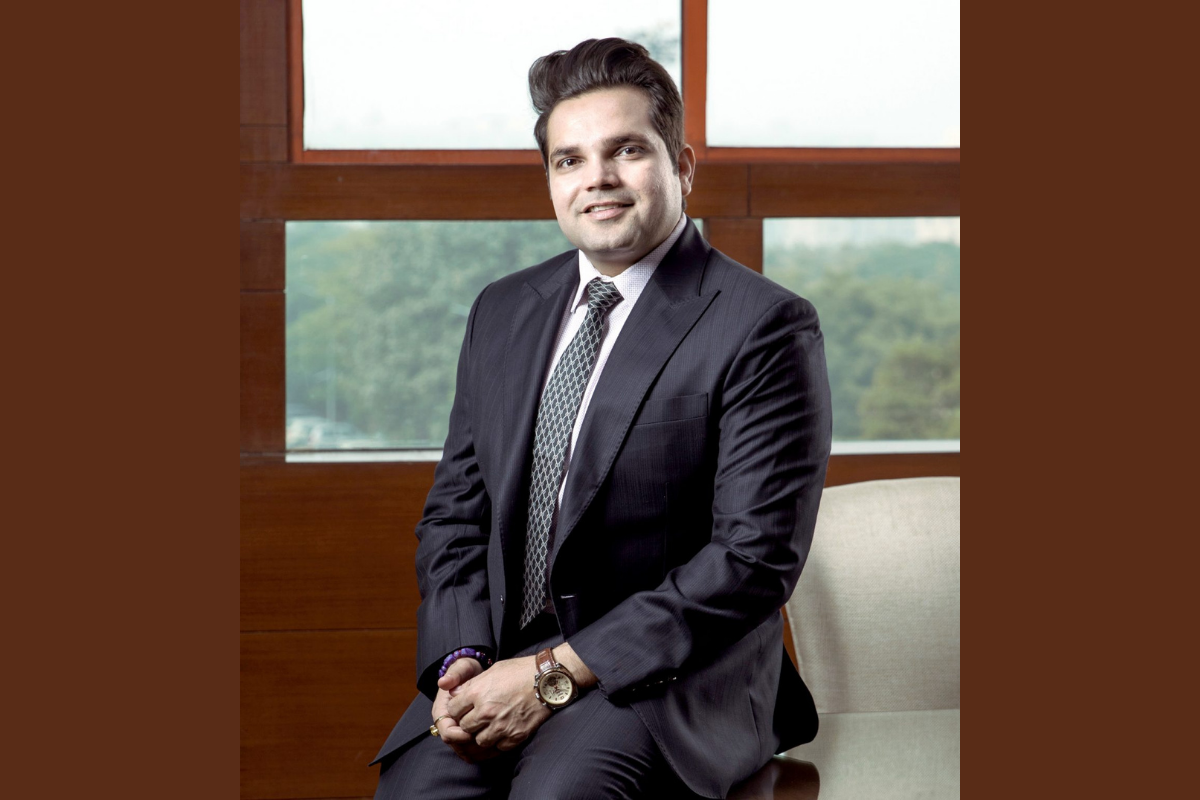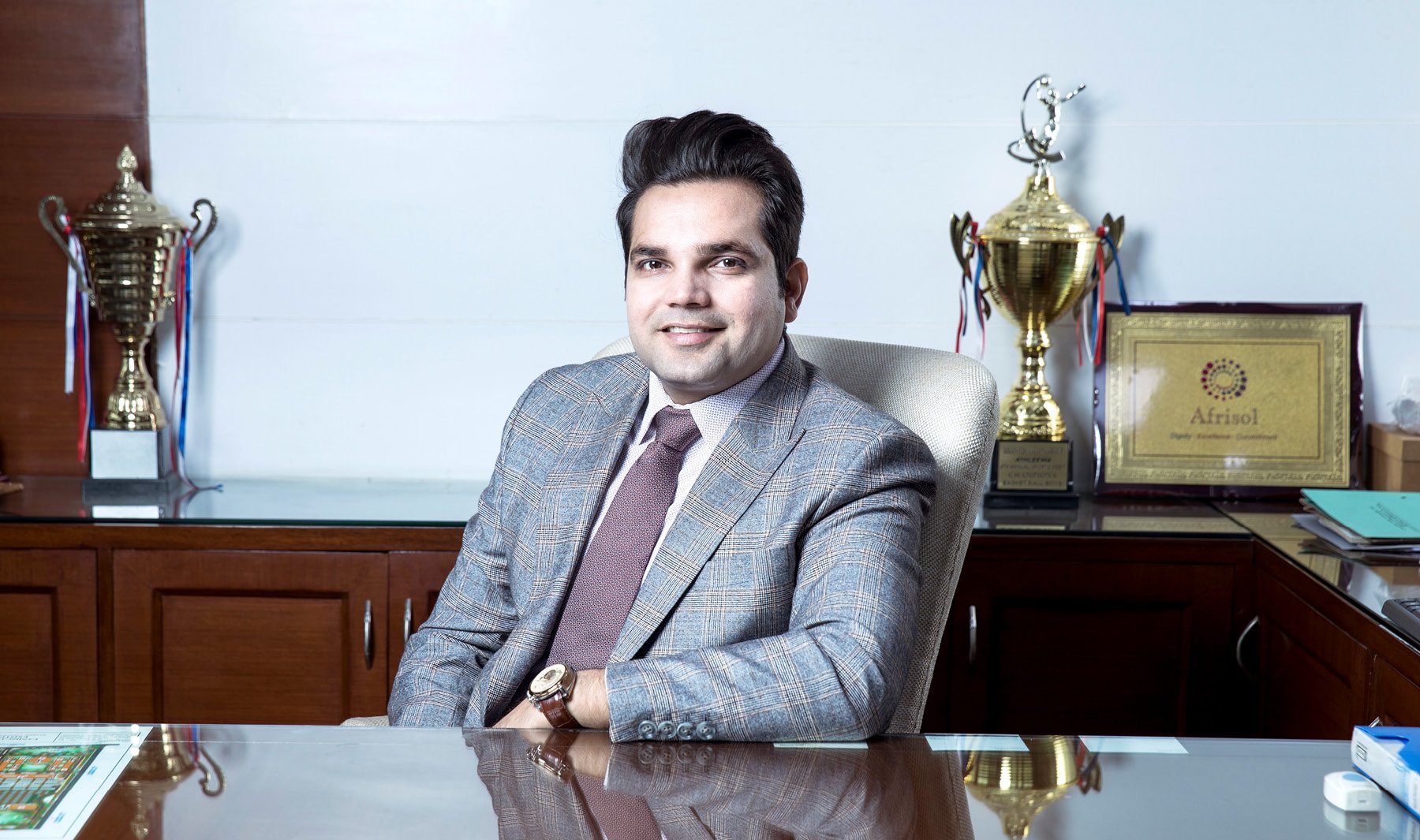Sharda University was founded on the premise of creating a transformative educational experience with a global outlook, and now, just over a decade later, Prashant Gupta, CEO of Sharda Group, is proud to say that it has been recognised as the most internationally diversified university in India by UNICA – an institutional network of 51 universities from 37 capital cities of Europe.

The numbers show that India has the world’s largest higher education system with roughly 1,000 universities and 40,000 colleges. However, where it falls short is in diversity. Despite it being the most populated country, with approximately 1.4 billion people, its share of foreign students studying abroad remains at less than one per cent.
Sharda University, a UGC-recognised private university located in Greater Noida, Uttar Pradesh – part of the Sharda Group of Institutions – is out to change those statistics. As one of the country’s only truly global universities, it was founded on the premise of creating a transformative educational experience for students from all corners of the world.

Our vision is playing out right in front of our eyes – we always wanted to attract a more diverse student base to come here and study, discover their unique passions and unleash their talents for the world; and we’re doing it.
“The university was formed in 2009, so it’s still fairly young,” says Prashant, who is is also the Co-Founder and President of Sharda University Uzbekistan. “In the span of 11 years, it has become the number one university in the country for diversity, with students from 85 different countries attending Sharda.”
What’s more, Sharda University has over the years received many global recognitions and accreditations. To highlight a few, it has been placed in the Excellent Band as per ARIIA Rankings 2021 by the Government of India, and rated among the 101–150 Band in the University category by the very prestigious NIRF 2021 ranking. Sharda is also accredited by NAAC and awarded with prestigious QS I∙GAUGE E-Learning Certificate Excellence for Academic Digitisation (E-LEAD).
Adding to the awards are top rankings like fifth in India in the number of patents filed by India Today and third in North India among top dental colleges by Outlook in 2020.
For the family-owned educational institution, this achievement is a real point of pride. “Since the beginning, Shri PK Gupta, Founder of Sharda Group, dreamed of creating a university that was driven by diversity,” Prashant says. “And now, we have 6,000-plus international alumni who continue to help us build a relationship between India and the world.”
Sharda University has 14 schools offering 130-plus undergraduate, postgraduate and doctorate programs. Prashant credits its extensive offering and student body to its success on the global stage. “We are one of the few universities in India right now that has disciplines ranging from engineering to medicine to law; a list we keep growing,” he says.
In 2019, Sharda opened its first overseas campus in Andijan, Uzbekistan, which is being envisioned to be a gateway for students from Eurasia. “Our vision is playing out right in front of our eyes – we always wanted to attract a more diverse student base to come here and study, discover their unique passions and unleash their talents for the world; and we’re doing it.”
We provide value-added courses in financial management and business among others to help our students scale their businesses and do more than just create ideas, but to execute them as well.
The future-forward educational institution was built on a strong technological foundation, which has many advantages, but one in particular has been the development of Sharda’s mobile-based application called Tomorrow for You. The app was designed to help students determine their skill sets before they even begin their studies.
“We use this app each semester with students to help them determine where their strengths lie,” Prashant explains. “Once those strengths have been identified, then we are able to connect them with a mentor who motivates them to improve their unique set of skills.”
Near and dear to Prashant’s heart, however, is Sharda Launchpad; an initiative he spearheaded that fosters innovation and supports entrepreneurship at the university. The program sees Sharda approaching different schools and seeking innovative ideas. Once identified, the Sharda committee then selects the top 100 or so most promising ideas and awards full scholarships to the brains behind them.
“Once they’re selected for our university, we provide them with mentors, who also happen to be Sharda alumni, to help them refine their ideas and find ways to build on them,” he says. “It’s a long process that helps the students bring their ideas to life.”
So far, the program has seen much success with many students starting their own companies. However, more than benefiting those students, the program’s impact is far reaching, improving the educational experience for others as well. “Sharda Launchpad has really helped to build an environment of learning and divergent thinking,” Prashant points out. “Even though many of these startups are relatively small, they still have around 2,000 students involved, all getting real-world experience within the company.”

When I meet our students and colleagues, I want to see them smiling and happy and feeling like what they’re doing is making a difference.
Even more, the program has seen some very promising innovators come to light with inventions that help to tackle some of the world’s most pressing issues like the COVID-19 pandemic. “One of our students, who’s now an alumnus, has innovated the world’s smallest ventilator,” Prashant says proudly. “And another group of students recently built a robot that can go into hospital rooms to safely deliver food to patients; a task that might be too risky for a human to do, otherwise.”
Above all, Sharda Launchpad gives students the confidence not just to believe in their ideas but to also run their own businesses. “We provide value-added courses in financial management and business among others to help our students scale their businesses and do more than just create ideas, but to execute them as well,” Prashant says. “If you want to start a company, you need this baseline understanding of finance, market research, data analysis and so on, so we provide that.”
Despite being one of India’s leading universities with an acknowledged reputation for excellence in research and teaching, Prashant reveals the key indicator of success he’s most interested in is what he calls the happiness index. “When I meet our students and colleagues, I want to see them smiling and happy and feeling like what they’re doing is making a difference,” he says. “That’s my growth perspective. For me, it’s all about the emotional content, the happiness index.”


